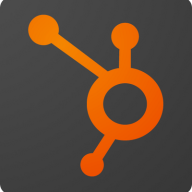

Pardot and HubSpot Marketing Hub are competing marketing automation platforms. HubSpot Marketing Hub often takes the lead for its comprehensive feature set and perceived value for cost.
Features: Pardot specializes in B2B marketing automation, lead nurturing, and tight Salesforce integration, ideal for Salesforce-heavy companies. HubSpot Marketing Hub offers an all-in-one platform with CRM integration, robust analytics, and diverse inbound marketing tools, which benefit companies seeking a holistic approach.
Room for Improvement: Pardot could improve by simplifying its deployment process and offering more integrations beyond Salesforce. Its user interface could be more intuitive. HubSpot Marketing Hub can enhance its reporting capabilities to provide more real-time insights and expand its social media tool functionality.
Ease of Deployment and Customer Service: Pardot can be complex to deploy, especially for those not deeply familiar with CRM systems, yet it offers various professional support options. HubSpot Marketing Hub provides an intuitive setup process, backed by strong onboarding support and accessible educational resources, making it easier to deploy quickly.
Pricing and ROI: Pardot generally involves higher upfront costs, advantageous for organizations needing deep Salesforce integration and advanced capabilities. HubSpot Marketing Hub offers flexible pricing plans that can yield a favorable ROI for businesses requiring a versatile and comprehensive toolset. It often delivers better cost efficiencies for diverse marketing needs, appealing to those aiming to maximize budget use.


We monitor all Marketing Automation reviews to prevent fraudulent reviews and keep review quality high. We do not post reviews by company employees or direct competitors. We validate each review for authenticity via cross-reference with LinkedIn, and personal follow-up with the reviewer when necessary.